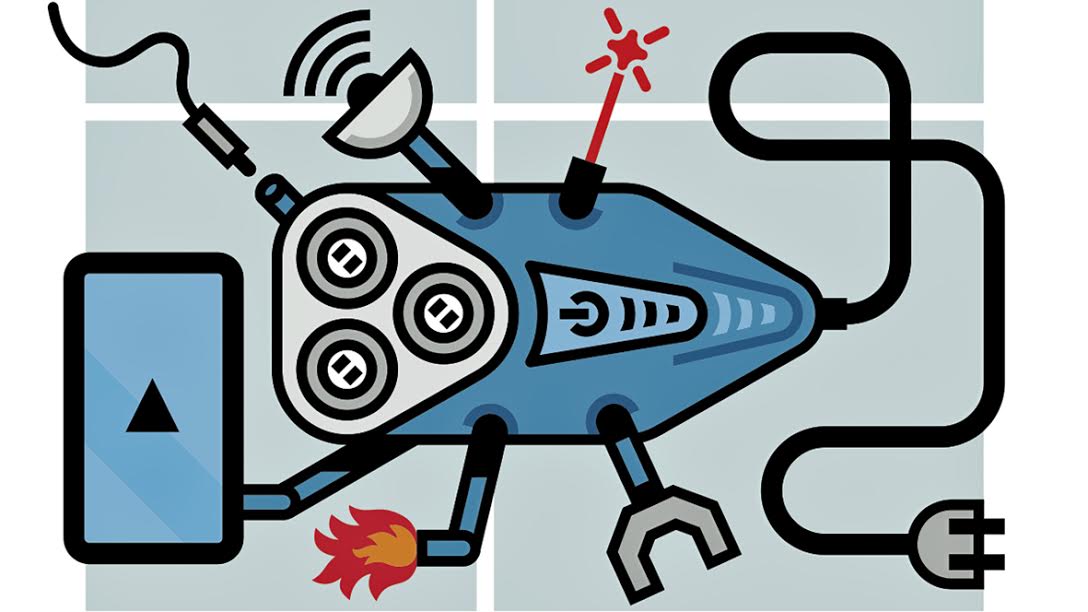I went to the Gillette razor factory and it was intense
Think shaving is simple? A trip around Gillette’s research lab reveals a kind of borderline-crazy obsessiveness with the - aha-ha-ha-ha! - "cutting edge"


Get all the latest news, reviews, deals and buying guides on gorgeous tech, home and active products from the T3 experts
You are now subscribed
Your newsletter sign-up was successful
You might not think it's possible to spend a fun day in Reading looking at how razors are made. And you're right. What I saw at Gillette's UK HQ this month wasn't fun. It was an awe-inspiring glimpse at how tech we take for granted arrives in our hands (or on our faces, in this case).
Gillette is obsessive about what it does. Its facility is like one of those endless lab complexes from the Resident Evil franchise, except that as you walk around it you encounter boffins poring over 3D-printed models of razor handles, or watching video footage of 50 men shaving, as opposed to razor-tongued dogs with no skin and tentacles coming out of their backs.
Secrecy is paramount. Anyone, after all, could be a Wilkinson Sword spy. I had my phone confiscated before being allowed to look around. "How much do these guys get paid for shaving on camera?" They can't tell you that. "What's your favourite abandoned shaver concept?" They can't tell you that, either; who knows when the market might suddenly be ready for, say, a shaver with two heads, powered by a crank handle?
This isn't how most people work, but this, I think, is how all the best tech gets made. Clearly razors are less complex things than smartphones, but Gillette's approach echoes the likes of Apple and Samsung in so many ways. They are driven to bolt on new features and upgrades. They want to keep honing.
To that end, they sit for endless, voyeuristic hours watching footage of men shaving -- dozens troop in every single morning for the privilege -- in the hope they'll suddenly notice something new, and to see how prototype products are faring with thesedepilating mercenaries.
Gillette truly reveres its past steps along the road to disposable-blade perfection. It sees fathers passing on "the knowledge" to sons, each generation having its razor.
So while Apple at last discontinued the iPod Classic, you can still buy Gillette's first ever use-and-throwaway razor today. The product churn is a never-ending narrative, and it sure as hell doesn't end just because you think three blades on a shaver is enough.
Get all the latest news, reviews, deals and buying guides on gorgeous tech, home and active products from the T3 experts
To clarify, I was visiting to see the brand's new FlexBall variant on its Fusion ProGlide lines. People mock advances such as this -- "Why do I need more blades? What's the point of the powered ones? Why's there a f **king ball on my razor now?"
Here's the thing, though: the experience of using the FlexBall is superlative. But then so was using the one before that, and the one before that, all the way back to the Mach III. We're talking over two decades of little, tiny, life-improving increments to my shaving happiness and ease.
The drive that permeates the razor- meisters' grey, home counties lair is nothing to sneer at. This is tech creation in its highest form: solving an ostensibly mundane problem with total, borderline- mad intensity. It's a stupid obsession on many levels, the epitome of solving "first-world problems". But it's also a rather magnificent obsession.

Duncan is the former lifestyle editor of T3 and has been writing about tech for almost 15 years. He has covered everything from smartphones to headphones, TV to AC and air fryers to the movies of James Bond and obscure anime. His brief is everything to do with the home and kitchen, which is good because he is an excellent cook, if he says so himself. He also covers cycling and ebikes – like over-using italics, this is another passion of his.